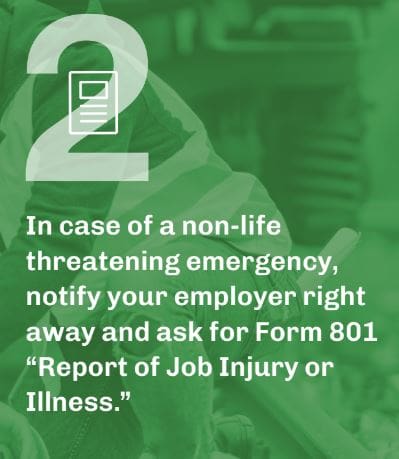Safeguarding the Workforce: Essential Immunizations for Different Types of Employment
Disclaimer: Consult with your doctor before receiving any medical treatment. The information provided here is for general informational purposes only and is not a substitute for professional medical advice.
In the ever-evolving landscape of public health, immunizations stand as a cornerstone in preventing the spread of infectious diseases. Beyond the general recommendations for the population, different types of employment often come with specific immunization requirements or advisories. In this blog post, we will explore the importance of immunizations in various work settings and highlight the key vaccines that may be required or advised to ensure the well-being of the workforce.
1. Healthcare and Medical Professions:
In healthcare settings, where employees are in direct contact with patients and various medical environments, immunizations play a pivotal role in preventing the transmission of contagious diseases. Key vaccinations may include:
- Influenza (Flu) Vaccine: Annual vaccination is typically recommended due to the close proximity of healthcare workers to vulnerable populations.
- Hepatitis B Vaccine: Given the potential exposure to blood and bodily fluids, healthcare workers are often required to be vaccinated against hepatitis B.
- Measles, Mumps, and Rubella (MMR) Vaccine: Protecting against these highly contagious diseases is crucial in healthcare settings.
- Varicella (Chickenpox) Vaccine: Healthcare professionals without a history of chickenpox may be required to receive this vaccine.
2. Educational Institutions:
In educational settings, especially in schools and universities, ensuring a vaccinated student and staff population is vital for preventing outbreaks of vaccine-preventable diseases:
- Measles, Mumps, and Rubella (MMR) Vaccine: Often required for enrollment in educational institutions.
- Meningococcal Conjugate Vaccine: Especially important for college students living in dormitories.
- Tetanus, Diphtheria, and Pertussis (Tdap) Vaccine: Ensures protection against these preventable diseases.
3. Agricultural and Animal-Related Occupations:
Workers in agriculture, veterinary care, or animal-related occupations may face specific risks, making certain vaccines essential:
- Rabies Vaccine: Crucial for individuals at risk of exposure to animals carrying the rabies virus.
- Tetanus Vaccine: Essential for those working with soil, animals, or in environments with potential exposure to tetanus-causing bacteria.
4. Occupational Health and Laboratory Settings:
In laboratories and certain occupational health settings, employees may require vaccinations to protect against potential workplace hazards:
- Hepatitis B Vaccine: Given the risk of exposure to blood or other bodily fluids.
- Tuberculosis (TB) Screening: Depending on the risk of exposure, individuals may need TB testing or vaccination.
Conclusion:
Immunizations are a cornerstone of preventive healthcare, and their role in the workplace is pivotal in protecting the workforce and minimizing the risk of disease transmission. Employers should collaborate with healthcare professionals to ensure that their employees are appropriately vaccinated based on the nature of their work. This not only safeguards the health of individual workers but also contributes to the broader goal of creating a safer and healthier work environment. In the intricate tapestry of occupational health, immunizations stand as a powerful shield, fortifying the workforce against preventable diseases and fostering a culture of well-being in diverse professional settings.
Unlock Enhanced Services with Your Company Account:
Creating a company account with Oregon Occupational Medicine allows us to better tailor our services to meet your specific needs and ensure prompt, personalized care for your team.
Schedule an Appointmant Online Here


